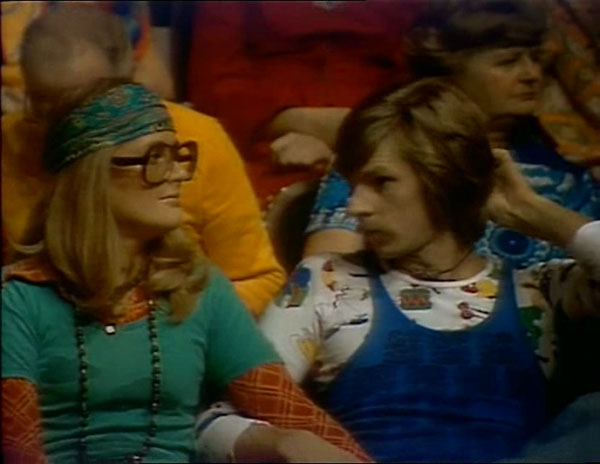Berenice (1954, Eric Rohmer)
An Edgar Allen Poe story about a talky, sickly shut-in who stares at everyday objects all day is an odd choice for your first film. The guy (Rohmer himself!) lives with an epileptic cousin, becomes monomaniacally obsessed with her teeth, and eventually they get engaged since neither can deal with the outside world. But she dies one night, and he takes this very melodramatically, then awakens from a fugue days later having dug up the grave and stolen the teeth. It’s all narration and sound effects, shot by Jacques Rivette, still a couple years before his debut short.


Khan Khanne (2014, Jean-Luc Godard)
“This is not a film anymore, although it is my best.” What Godard sent to this year’s Cannes instead of appearing in person. Godard is his usual latter-day self, acting the scatterbrained professor, possibly quoting Hannah Arendt and/or referencing Chris Marker, cutting in excerpts from Alphaville and King Lear, using camera shots and sound editing that make it seem like he doesn’t know what he’s doing, ultimately making little sense to me, but with a weirdo bravado.

Adieu a TNS (1998, Jean-Luc Godard)
Swaying, smoking, Godard recites a singsongy poem over gentle accordion in three parts, the framing tighter each time. I’ve read that this was “a bitter and mournful farewell to the National Theater of Strasbourg.”

The Accordion (2010, Jafar Panahi)
Two brothers play music for spare change, not realizing they’re outside a mosque. A guy threatens to report them to the police, takes their accordion and runs. But it turns out he’s just a poor bastard hoping to earn money with the instrument, so the kids join him instead of killing him with a rock, which had been the other option.

The Nest (2014, David Cronenberg)
Single-take nine-minute shot from first-person perspective of surgeon (Cronenberg) interviewing patient (Evelyne Brochu, Tom’s ally/coworker in Tom at the Farm) who claims she has a wasps nest inside her left breast. Doubles as a commissioned short for some exhibition and a trailer for his first novel, Consumed, out this fall.

Gradiva (2014, Leos Carax)
Another gallery commission featuring a naked girl. This time the girl has gone to buy cigarettes, returns and has a short conversation with Rodin’s The Thinker.

The Legend of Hallowdega (2010, Terry Gilliam)
Unfunny fake investigation into haunted goings-on at the Talladega racetrack from a Daily Show writer. Just terrible. I won’t give away the twist comedic ending because I’m too embarrassed. Ends with a nice Wolf Parade song, at least.

On demande une brute (1934, Charles Barrois)
Early Jacques Tati, who wrote and starred as a hapless actor who accidentally signs up to be a wrestler. Despite all the time spent on audition scenes and the wrestling match, the only good bit is when he tries to keep his shrew wife from absentmindedly eating a pet fish at the dinner table.

Gravesend (2007, Steve McQueen)
Beautiful shots that seem to go on longer than they should, check, yep it’s the guy who made Hunger. One of those art installation pieces that is very cool to read about and less fun to watch. I wanted to like it, and almost did…


From the official description:
Gravesend uses a documentary approach to focus on the mining of coltan, employed in the manufacture of cell phones, laptops and other high-tech apparatus. The film cuts between two sites: a technological, highly automated industrial plant in the West where the precious metal is processed for the final production of microelectronic parts, and the central Congo, where miners use simple shovels or their bare hands to extract, wash and collect the ore on leaves. .. coltan, traded at an extremely high price, represents one of the key financial factors in the armed conflict of the militia in the Democratic Republic of the Congo, where decades of civil war have cost several million human lives.
Away From It All (1979, John Cleese & Clare Taylor)
Fake travelogue disguised to look and sound like a real one (unless you recognize John Cleese’s voice), very gradually straying from the company line, slipping in notes of humor and aggression. Stock footage takes us from Rome to Venice to Ireland to Bulgaria to Vienna to New York, back to Venice to Acapulco, to a rapid montage of vacation spots as the narrator begins ranting about existential terror. Accompanied Life of Brian in British theaters.







































